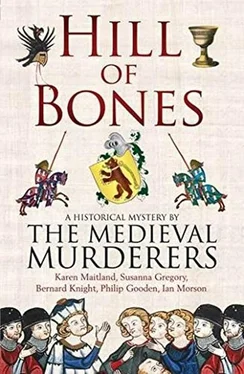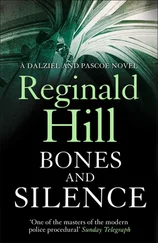When we were seated and provisioned with drink – beer for William and me, canary wine for Katherine – I asked him where he had been all these years and how it happened that he returned to his father’s house just too late. He was not a boastful fellow and did not pretend to great adventures.
He said that, after many arguments with his father, he left Bath and went to seek his fortune in London. It even crossed his mind to become a player, like me. Failing in that, and making little progress in anything else, he wrote to Cousin Kate that he was planning to try his luck in the Americas. Somehow he ended up in Edinburgh instead and become secretary to a wealthy cloth maker. Memories of his father’s much smaller business, together with a clear head and a neat hand, enabled him to get the post and even to prosper in it, but it was hardly the daring voyage of discovery he’d proposed to himself on quitting home. A mixture of pride and shame had prevented him communicating again with his father or his cousin, but lately he’d been contemplating a return south. The decision was made for him when the old manufacturer died. That happened a month ago. It had taken William that time to travel back to Bath. His arrival on the day of his father’s death was good fortune – or bad fortune – depending on which way you looked at it.
‘I will not say I had any great love for my father, Nick,’ he said. ‘But I would have been glad to have seen him for one last time and to have him see me.’
Katherine and I exchanged looks. For certain, she had not told him of my pretence on the previous night. She squeezed her cousin’s hand – they were sitting side by side – and said, ‘I believe Uncle Christopher died content, William. Even if he could not see you, I know for a fact that you were in his mind’s eye.’
William looked fondly at her. Considering what had passed between us the previous night, I might have felt jealous but I did not. Instead I thought of the play we had just staged, A City Pleasure , about the kissing cousins from the country. Then I ordered another round of drinks from the potboy.
This – the life story of William Hawkins, the obvious affection between him and Katherine – was all beside the point. Why did the Hawkinses want to talk with me? Before we could get to that point I handed over the commonplace book to Katherine, happy to get rid of it. She was happy to receive it too, saying it was the very item that she wanted to speak to me about and that she had, in her confusion and grief that morning, brushed aside when I intended to return it.
‘I recognise this,’ said William. ‘It was father’s.’
‘I entrusted it to Nick,’ said Katherine. ‘And I am glad I did, for I fear that Uncle Christopher’s friends would have taken it otherwise.’
‘The gentlemen who were in the house?’ I said.
‘Yes. They came to condole with me but they seemed more interested in going through Uncle’s papers and documents.’
‘Looking for his will?’
‘Mr Downey the lawyer already has a copy of that. They were in search of something else.’
I waited for her to explain. They seemed reluctant to say more. Katherine looked at her cousin.
Eventually, as if confessing to something slightly shameful, William Hawkins said, ‘My father was much occupied with stories of olden times, the days of knights and damsels and chivalry. He read fables and poetry. He even wrote verses himself. For years he attempted a great romance about one of King Arthur’s battles.’
That explained the scrawled pages of poetry, the tapestries depicting knights jousting and hunting in Uncle Christopher’s bedchamber.
William said, ‘There is a tale that Arthur himself fought a final battle close to Bath, a battle in which he slew many of the Saxon foe single-handed.’
‘It was on a hill outside the town,’ said Katherine. ‘Solsbury Hill, it is called now, but then it was known as Badon.’
‘There are other stories about the place,’ pursued William. ‘I suppose there are bound to be stories in a very old region like this. They say that treasures are buried on Solsbury Hill. There is talk of a magical mirror, for instance. Even of items that date from Arthur’s time. My father went searching on the hill, although I do not know whether it was for inspiration or for relics.’
‘And found them?’ I said.
William shrugged.
Katherine said, ‘He carried this book with him wherever he went. He made notes, he took down sayings that he approved of. He had ideas about how the manufacture of cloth might be improved and tried to design better looms.’
She flicked through the book and held it open at one of the mechanical sketches. I nodded, then noticed something different on the opposite page. It wasn’t a weaver’s loom but a drawing of a hillside, dotted with trees. There was an arrow indicating north. There were a couple of crosses and other arrows and question marks. There was even an image of a bear a couple of inches tall, delicately drawn. I indicated the page.
Katherine examined it and said: ‘This is most likely Solsbury Hill. The bear was the emblem of King Arthur. My uncle believed he had found the place where Arthur slew more than nine hundred of the enemy.’
‘Nine hundred!’
‘It was an age of heroes,’ said William Hawkins with a straight face.
‘He did sometimes talk of treasure on Solsbury Hill and of spirits who still linger about the place but I think this is what he meant,’ continued Katherine, thumbing through more pages until she came to some of old Christopher’s verses. She recited:
‘Of gold and silver they interr’d many a pound
When these knightes’ corses were laid i’th’ground
And Britain’s foes no footing found perdee
After Arthur won full soverayntee.’
‘He used to read his verses to me when I was young,’ said Cousin William. ‘I am afraid that I did not always show a proper reverence for his words, and he struck me more than once when I yawned.’
We were interrupted by the potboy returning with our drinks. I took a draught of mine.
‘The gold and silver aren’t real,’ I said after a moment, feeling on familiar ground since we talked of gold and silver all the time on stage and it was nothing more than words. ‘This is the language of poetry. Your uncle merely means the fallen bodies of Arthur’s knights, and so on. Just as the bear stands for Arthur, the knights’ bodies represent the treasure that is buried there.’
‘I know that,’ said Katherine. ‘But I do not think that Mr Maltravers or Mr Downey or Dr Price know it. They believe my uncle left some… some guide… to finding hidden treasures on Solsbury Hill or elsewhere. Mr Maltravers asked me before he left the house today whether there were any other papers, anything hidden away.’
‘What did you say?’
‘I said the only papers my uncle valued were his poetry. Said they were welcome to look at Uncle Christopher’s work if they wished. He would be pleased to have readers. What is in this book is only scribbled bits and pieces. Uncle paid to have his Arthur poem copied out properly in the new italic style.’
‘And what did they say to that?’
‘They aren’t interested in his poetry, Nicholas. Mr Maltravers laughed when I mentioned it. He did enquire about his black book, though, and I remembered you said that someone had asked you for it at the baths.’
‘“Asked” is one way of putting it.’
Now William Hawkins spoke up: ‘Then I stepped in to protect my dear cousin from these intrusive questions so soon after my father’s death. I said that they could direct their questions to me.’
‘They must have been surprised to see you again after so many years.’
‘They were, but their real concern was whether I’d get in the way of their search through my father’s effects.’
Читать дальше












